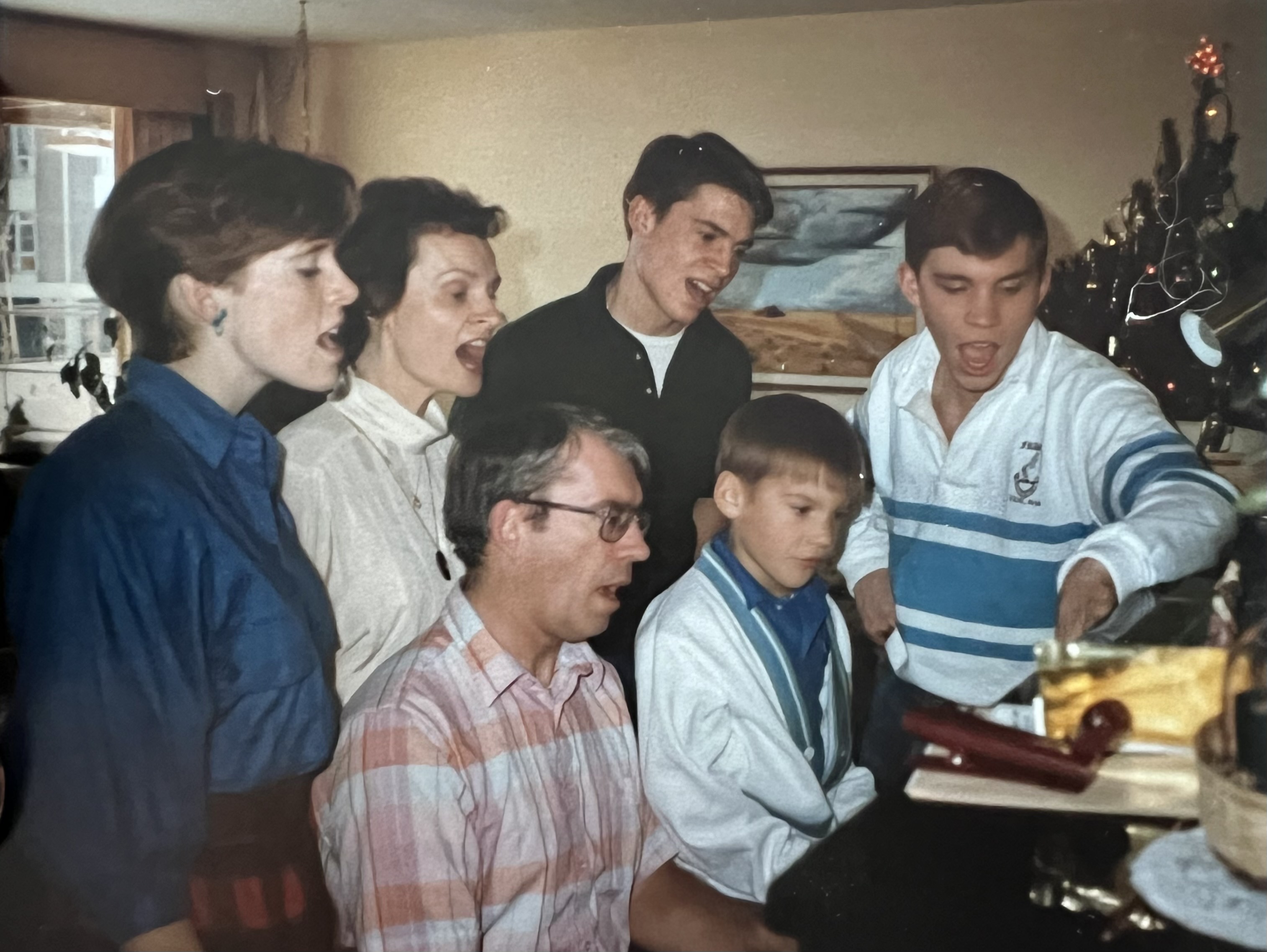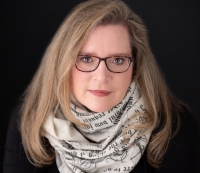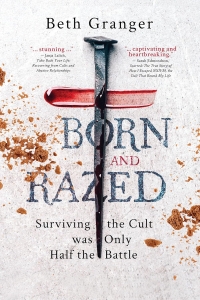Reclaiming Broken Pieces of Your Identity
When I left the cult, I stopped making music. I quit playing my beautiful viola, which has been sitting patiently under my desk for twenty years, waiting to be rediscovered. Never mind that I had played in an orchestra and string quartet for decades. I lost count how many times we serenaded brides on their trips down the aisle.
I also stopped singing. For fifteen years I pushed it out of my life, though choral masterpieces often haunted me. On rare occasions, I’d allow myself to blast Handel’s Messiah or Mozart’s Requiem from my car speakers and sing along at the top of my lungs. But for the most part, I shut the door on those memories.

My father was the music director at our cult-run boarding school for years. I can still remember lying on the church pews in my fuzzy sleeper pajamas while he directed “Sunday Night Sing”. I’d close my eyes and let the glorious music swirl around me like magical fairy dust. Everyone on campus would gather to learn the classic choral masterpieces and I was there for it.
I was so proud of my dad. I idolized him from a distance because my parents weren’t allowed to raise us kids. (The leaders said they were steeped in idolatry. Whatever that meant.) Even so, I couldn’t wait to be old enough to sing in the school choir. Every Sunday they would perform sacred works by the greats like Bach, Mendelssohn, Fauré, Brahms or Duruflé.
I also dreamt of singing on stage, under a spotlight. Each year our school performed a Gilbert and Sullivan operetta. I was spellbound by the productions and couldn’t wait for my turn to audition for a lead role. Singing was as natural as breathing to me, and it seemed inevitable that I’d become a soloist, just like my older brothers, who were head choristers in a local boys’ choir. They even got to perform in England! (I wasn’t at all jealous.)
From the outside, it appeared that our school valued music since musicians were held to the highest possible standards. Grenville used every opportunity to tout its elite status and visiting dignitaries were always treated to showstopping performances.
But our leaders were also intent on destroying the sin of “haughtiness”. No one with talent was safe from public shaming. (To be fair, no one was safe, talented, or otherwise.) I often witnessed my dad being attacked and belittled for his passion in music. “Your talents are microscopic without God!” or “Your ego always gets in the way of the Holy Spirit! This school’s music program is being destroyed by your haughtiness!” On more than one occasion, my dad was banned from music altogether.
As a child, I soon learned to keep my musical dreams to myself. One day, at age 11, I snuck upstairs to the loft in the school’s music storage room. The sheer volume of scores beckoned to me. I poked around until I found the G&S section. Goody! I can start practicing!
I found Yeomen of the Guard, the school’s most recent production. Unable to decide between the two female leads, I opted to try all their solos. Phoebe’s song “When Maiden Loves” opened the play, so I started there.
Seated cross-legged on the loft’s wooden floor, I tentatively began singing. I was so lost in the wonder of the song that I didn’t hear footsteps on the stairs. When Father Farnworth’s head appeared, I froze.
“What do you think you are doing up here?” he demanded.
“I’m . . . singing?” I stammered.
“Who gave you permission to be up here?”
Fear squeezed my vocal cords, and I could barely speak. “No one. I thought it was ok.”
“You know very well that this area is off-limits.” Furthermore, what possessed you to come up here?”
Might as well tell the truth, I figured, seeing as I wasn’t ashamed of it. “I’m practicing these solos because I want to audition when I’m older.”
Father Farnsworth frowned. “How old are you?”
“Eleven.”
“Is there no limit to your haughtiness?!” He shouted, startling me. “What makes you think you’ll be given a lead role?! The Gillis family is full of haughty, self-centered, attention seekers! All you want is to be in the limelight. When will you people ever learn!?”
I gulped as a wave of shame crashed over me. My desire to perform on stage suddenly felt sordid, like a dirty secret. Who do you think you are? I scolded myself. You don’t deserve to be a lead on stage.
That incident haunted me. I tried to put it out of my mind in my teens, but I couldn’t. Following my older brother’s footsteps, I bravely auditioned for the lead role in three consecutive G&S plays. Just like him, I landed the roles I wanted every time. But unlike my brother, I never actually got to play the roles on stage. Every single year, I lost my part due to my alleged sins. The first year I was expelled. As punishment during year two and three, I was banished from the stage and relegated to the orchestra.
Do you know how painful it is to play the boring offbeats on the viola with tears streaming down your face while your understudy is shining in the spotlight? Well, I do.
Fast forward to age 45 when, to quell relentless anxiety and binge urges, my psychologist suggested I tap into my creative side. “Do you have any artistic talents lying dormant?” Immediately, I thought of singing. It had been over 15 years since I’d quit the Grenville Choir as I left my entire world behind.
After examining the repertoire of several ensembles, I set my sights on the Ottawa Choral Society. One of Canada’s most prominent symphonic choruses, they regularly perform at the National Arts Centre. The idea seemed thrilling. I shared my ambition with my dad, who seemed impressed before advising me not to audition. “You won’t be able to handle singing music at such an advanced level,” he cautioned.
That remark stung, but instinct told me he was wrong. My entrance audition went so well that the director asked me where I’d been hiding. How much time have you got? I thought, nervously laughing off his question.
As singing became a positive part of my life, intense emotion overwhelmed me. I’d drive to work with tears flowing as I listened to the familiar choral works. It felt like I was being welcomed home. But this time there were no “light sessions” or mind games. Just the thrill of making glorious music with 100 other dedicated singers. To my delight, I found I was extremely well prepared. The training I’d received at Grenville allowed me to handle the repertoire with ease.

But healing happens slowly. Often in layers.
Eight years have passed since I joined the choir and I’m now entering a new stage of recovery. Recently, we were given the rare opportunity to audition for solos. Most of the time the OCS hires superstar soloists like Julie Nesrallah, Ben Heppner, and Measha Bruggergosman, to name a few.
Intuition told me to put my name forward. That, and the fact that several members urged me to try out. Even so, I knew it would be challenging. It doesn’t help that ever since benzo withdrawal I get dizzy singing, and I can hardly read music anymore. (Don’t ask me to name any notes!)
Nerves tormented me as I prepared for the audition. Sometimes I broke down, feeling overwhelmed by the fears that tormented me. The voices in my head screamed “Who do you think you are?!” “Look at you, haughtier than ever!” “What if you ruin the concert!”
Despite all of this, I managed to get through the audition. For a magical few minutes, all the stars aligned. My crippling nerves faded, my strong soprano voice soared, and my breathing never faltered.
Then, afterwards, I fell apart. It was like my nervous system crashed. For the next 48 hours, I was a weepy mess, tears streaming constantly. My digestive system decided to incapacitate me too. All I can say is, thank goodness for indoor plumbing.
See, this is why I write. I want to the chance to set the record straight and keep things real. On the outside, I might appear to be a confident, talented, well-trained vocalist. While on the inside, I can be a complete mess.
Anyway – the good news is that I got the solo! The bad news is that I must face the fear of performing it a few weeks from now.
But maybe that’s not bad news. I’m learning that all these challenges or emotional triggers, can be blessings in disguise. They are opportunities to heal deep wounds. Now is my chance to embrace my younger self and say, “Beth, you were born to sing! Even as a soloist!”
I guess it’s time that I finally unleash my voice, both on the page and on the stage.
But believe me, that’s a lot easier said than done.

